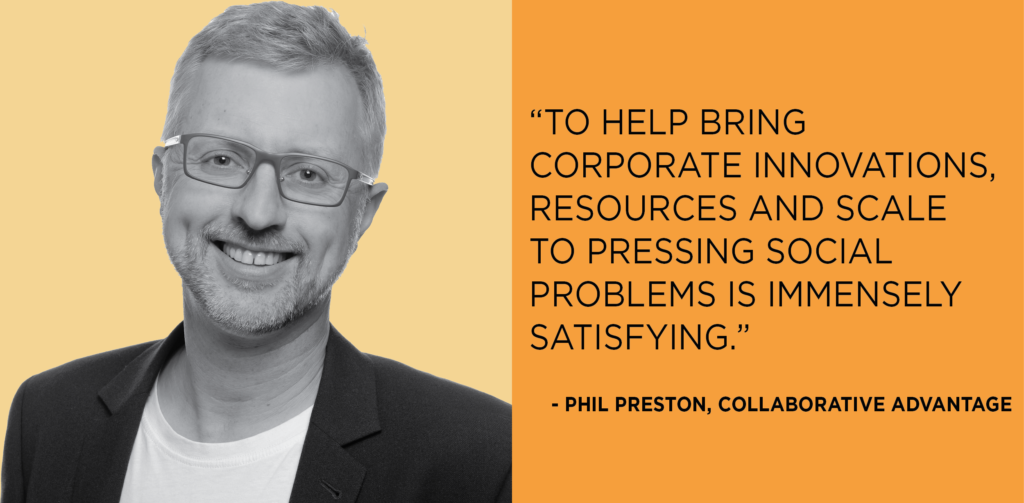In this month’s member interview series we feature Phil Preston, CEO of the Collaborative Advantage, about his experience with shared value as a consultant, and the value of being able to translate shared value concepts within and between organisations.
What does shared value mean to you?
For me, shared value is about aligning business objectives with strong, healthy and resilient communities. It’s not about doing good when we feel like it or upholding corporate reputations, it is about creating real value and a better way of life for all concerned.
What led you individually to the shared value idea? How did you come across it?
In my former life as an investment research manager, it was clear that people in that industry were motivated by picking winners. So I figured the best way to get capital behind social and environmental challenges was to link them with corporate profitability. Shared value provides this link and Porter and Kramer’s involvement gives it the traction it needs in the business community.
How is shared value playing a role in the Collaborative Advantage’s work and where are you at on the journey?
Interest in shared value is currently enjoying an upswing which is allowing me to focus most of my time and resources in this area. It’s fair to say that it has taken several years to get to this point, and many people may not realise that we are early adopters here in Australia.
As a consultant, what are common challenges or themes you see in organisations taking on shared value?
For professionals who don’t live and breathe it every day, shared value can be difficult to truly grasp and differentiate from corporate social responsibility, and that’s where awareness and education play an important role. Once the concept is understood, the next challenge is knowing how to generate, develop and implement strategies. This is where practical tools and guidance come in handy. I’ve also found that, as an independent practitioner, being able to ‘translate’ shared value concepts within and between organisations is valued.
How has practicing shared value helped you individually in your role or career more generally?
I really couldn’t think of a better job or field to be working in. To help bring corporate innovations, resources and scale to pressing social problems is immensely satisfying. I also endeavour to practice shared value at a personal level by linking key voluntary roles I fulfil with the development of my business.
What do you think are some pertinent issues in Australia that could be solved through creating shared value?
The level of attention paid to processed sugar content in foods has increased to a point where traditional players and incumbent products are already under enormous threat. There will be huge returns on offer those who can disrupt this space, and they will be companies who are very good at listening and creating new value propositions for customers.
Another area that needs attention is the investment supply chain itself. An efficient market would be able to ascribe future value to shared value strategies if they have merit. However, because there are so many layers between superannuation fund members and the companies they are ultimately invested in, interests are misaligned and capital rewards short-term wins rather than long-term value creation, which is why we have boom-bust cycles. A strong and willing coalition could bring about change.
